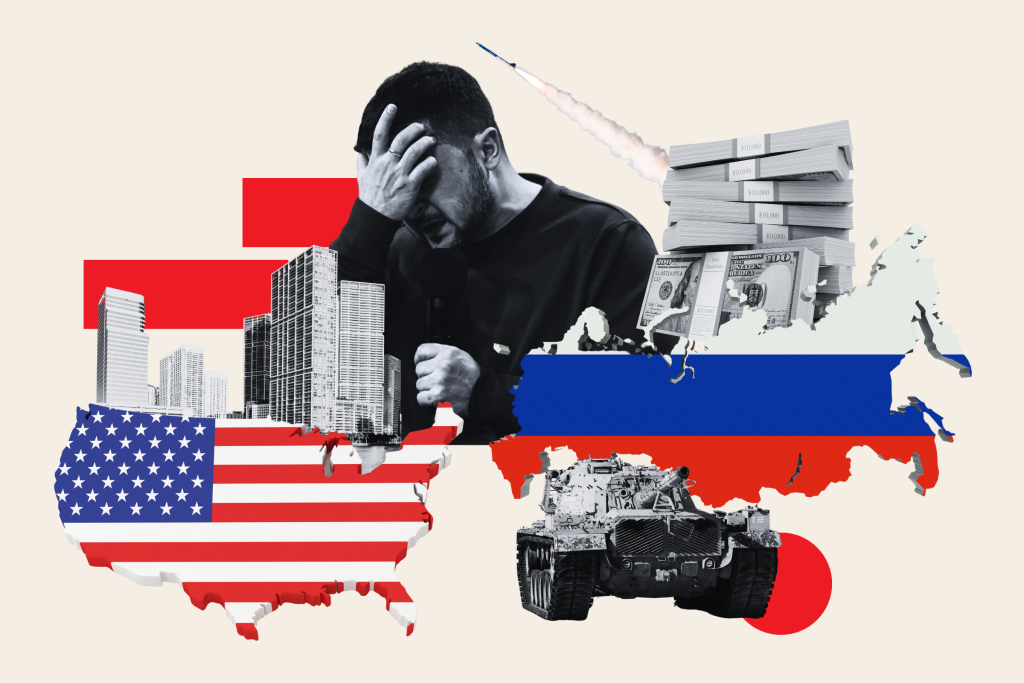The ongoing conflict between Russia and Ukraine has sparked a global debate about the ethical implications of conducting business with Russia. Despite widespread condemnation of the invasion and subsequent sanctions, numerous U.S. companies continue to operate within Russia, generating substantial tax revenue for the Kremlin. A recent report by B4Ukraine and the Kyiv School of Economics (KSE) Institute revealed that American firms contributed a staggering $1.2 billion in profit taxes to Russia in 2023, making the U.S. the largest foreign contributor of profit taxes to the country. This figure represents a significant increase from the $915.7 million paid in 2021, despite a decrease in overall revenue. This financial contribution effectively subsidizes the Russian government, raising concerns about its potential to prolong the conflict and undermine international sanctions.
The list of top contributors includes well-known American brands like Philip Morris International, PepsiCo, Mars, Procter & Gamble, and Mondelez. While some companies claim to have scaled back operations, they continue to generate profits and pay taxes in Russia. Philip Morris International, for example, cited financial implications as a reason for not divesting from its Russian business. Mondelez similarly argued that investors were unconcerned with the ethical implications of continued operations in Russia. These justifications have drawn criticism from figures like Dr. Michael McFaul, former U.S. ambassador to Russia, who called the companies’ actions “shameful” and urged shareholders to reconsider their investments.
The B4Ukraine report further highlights the discrepancy between some companies’ humanitarian aid to Ukraine and their tax contributions to Russia. In several cases, the amount paid in taxes dwarfs the amount donated in aid. For instance, Philip Morris International pledged $10 million in aid to Ukraine, a stark contrast to the $220 million it paid in profit taxes to Russia. This disparity raises questions about the sincerity of corporate social responsibility efforts and the overall commitment to supporting Ukraine. The ethical dilemma faced by these companies is complex, balancing financial interests against moral obligations in a volatile geopolitical landscape.
Experts and analysts have called for stronger action to address the continued presence of U.S. companies in Russia. Mark Temnycky of the Atlantic Council advocated for stricter penalties on companies operating in Russia, arguing that their presence bolsters the Russian economy, enables military spending, and weakens the impact of international sanctions. The economic benefits derived by Russia from these companies essentially reward the invasion and undermine international efforts to pressure the Kremlin. Similarly, Professor Hilary Ingham of the University of Lancaster suggested that access to Western goods might bolster Russian public support for the war, further emphasizing the complex interplay between economic activity and political sentiment.
Despite the moral and political pressures, exiting the Russian market presents significant financial challenges for businesses. The Russian government imposes a 15% exit tax and mandates a 50% discount on asset sales, creating significant financial disincentives for companies considering withdrawal. These measures, coupled with a planned increase in the corporate profit tax rate to 25% in 2025, further complicate the decision-making process for U.S. businesses operating in Russia. The combination of financial penalties and ethical considerations creates a difficult situation for businesses navigating the complexities of the ongoing conflict.
While many condemn the continued engagement of U.S. businesses with Russia, some view it as a normal aspect of international relations. Dani Belo of Webster University argued that conducting business with adversaries is not uncommon in the interconnected global economy. This perspective highlights the complicated nature of international relations, where economic ties often persist despite political conflicts. The ongoing situation in Ukraine presents a challenging dilemma for U.S. companies, requiring them to carefully balance financial interests against ethical considerations in a highly charged political environment. The long-term implications of these decisions remain to be seen as the conflict continues to unfold.










